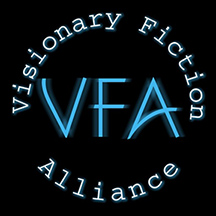I was working on a scene about how our silence keeps us prisoner, and as this is my final edit before publication, I scrutinized a passage and concluded my protagonist, Damon, came off a bit preachy. By grounding his dialogue to his own experiences, the scene packed a more powerful punch. As I don’t want to give the plot away, I’ll only mention that I use a dungeon symbolically throughout the book as a metaphor. The context related to how some people voluntarily imprison themselves by handing over the key to their oppressors. The key symbolizes fear and how oppressors are given permission to draw it out of their victims as a method of control.
Fast-forward to lunchtime. I went downstairs to eat, and my daughters excitedly told me the hens escaped from the coop. My landlord keeps ten hens for eggs, and the girls have grown fond of them. Apparently, the hens figured out how to open the gate and liberated themselves. With the help of my husband, my daughters proceeded to chased the hens until they were able to lead them back to the coop. During the whole debacle, the cleverest of the hens, managed to make her escape. I cheered when I heard about it.
Being a writer, the slapstick scene played in my head. Imagining my girls running after hens made me laugh, and I wondered why my husband didn’t get out my Iflip and film this screwball moment. As my eldest daughter recounted the event, my attention went outside, where lo and behold, a hen was flying outside of the cage.
My husband and youngest daughter ran out to lead her back inside. Meanwhile, I expressed to my eldest how if it were me who saw the hens escape, I probably would’ve turned a blind eye and let them on their way. Much as I don’t judge people for caging hens, I don’t judge a hen’s decision to escape from her prison. If I sound like I’m personifying the situation, that could very well be true. I recently completed my first draft of Forever Valley, in which a hen is one of the main characters. I know what happened will eventually end up in my book.
Coincidence or synchronicity ushered into my consciousness from the Divine?
I see it as the latter because incidents like this happen too often for me to discount it as mere coincidence.
While the outside chase continued, I recounted to my eldest how the scene I worked on moments before paralleled the hens’ ordeal. My sweet nine-year-old then went on to say, “That’s so weird. It happened at the same time. Just as you were writing about it, we were outside getting the hens back inside.”
“Weird, indeed,” I said as my youngest daughter entered and told me the hen I saw was the one that escaped. They managed to get the hen back in her cage.
I had an eerie feeling as I recounted Damon’s message over how we willingly enslave ourselves by giving the key to our oppressors. The closing of our real life escapade ended with the hen giving up her own freedom voluntarily.
“She came back because she missed her friends,” my youngest surmised.
She was probably right—that and along with a free meal. I’ve come to see hens as very social and affectionate. Here, in Hawaii, we have ferrel hens, and the escaped hen would’ve been all right on the outside, but she decided to return to the place where she was most familiar. This was another aspect of the scene I was focusing on; some of us become imprisoned by the comfort of familiarity and security. Of course, that’s not necessarily bad; however, with the wrong person, religion or political ideology it most certainly can be viewed as a weakness and used against us. In the case of the hen, one of her friends ended up on someone’s plate during a Thanksgiving dinner. I leave it up to you to decide whether or not the hen should’ve stayed away.
When synchronous moments in writing happen to me, I ruminate over what I’m supposed to take from the experience.
Did what happen justify or challenge an opinion I hold dear to me?
Did it lead me to accept there are some aspects of the human condition that still have a long way to go before evolving…and the changes that will move us forward will happen long after I die?
That last one is the most difficult for me to ponder over, and I’m glad I have my writing to help me express my frustrations. Writing visionary fiction helps me view stories through a holistic and positive lens. In the process of healing my ideal version of the world, I heal myself.













